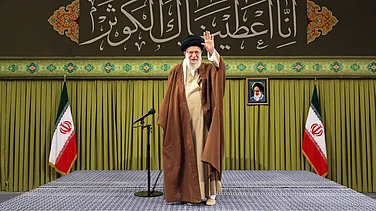World Food Day and the International Day for the Eradication of Poverty are observed the world over on consecutive days in the calendar to emphasise the close relationship between food security and poverty eradication. While the former is held on October 16, the latter is observed on October 17.
To commemorate the establishment of the Food and Agriculture Organisation (FAO) of the United Nations in 1945 and to reiterate the necessity of safeguarding global food security, it was decided to observe October 16 as World Food Day. The pronouncement of the International Day for the Poverty Eradication on the other hand is an outcome of the 1992 declaration of the UN General Assembly, in the realisation of the fact that poverty in itself is a violation of human rights. World Food Day emphasises the importance of food security and sustainable agriculture, and it acknowledges the ongoing work to address these issues at a global level. It provides an opportunity for governments, organisations, and individuals to highlight progress and challenges related to food security. The International Day for the Eradication of Poverty is observed to manifest solidarity with the poor people who happen to be born in poverty by the very ‘mistake of birth’.
The UN as an international overarching agency plays a key role in addressing global issues like hunger and poverty. By scheduling the observation of these two days in a consecutive manner, the UN intends to emphasise its commitment to addressing the twin challenges through its various agencies, initiatives and policy interventions. It’s important to note that achieving the targets related to food security and poverty eradication is a complex and ongoing global effort. These observances serve as annual reminders of the work (still) needed to make progress in these areas and encourage governments, organisations, and individuals to continue their efforts to address these critical issues. While challenges remain, these days provide opportunities for reflection and action toward achieving the set targets.
The interconnectedness of the two issues stands at the core of this consecutiveness. Food security and poverty are deeply interconnected in both the immediate and the long-run perspectives. Hunger and malnutrition often stem from poverty, as people living in poor conditions may not have the means to access or afford nutritious food. In a situation of food shortage propelled by any other factor than poverty, the consequential outcomes push the people otherwise not poor into poverty. As such the two are related in a cyclic manner which by its very nature and essence is vicious, negative and self-propelling. By placing these days back-to-back, it underscores the need to address these issues together to arrive at a sustainable solution to this dual-faceted problem.
The dual issues of food security and poverty eradication are fundamentally aligned with the UN’s Sustainable Development Goals (SDGs). SDG 1 & 2 read as, ‘No Poverty’ and ‘Zero Hunger’. Observing these days in succession every year serves as a reminder to the global community towards the commitment to address these global goals of primary importance to an entitled life. Eradicating poverty is not solely about increasing income but simultaneously about improving people’s overall well-being, which includes access to food, healthcare, education, and more. Observing these days together encourages a more holistic approach to addressing poverty in the realisation of facts and observations on the issue from different pockets of the world.
The choice of dates (October 16-17) is not due to the failure of global bodies to make decisions about the timing and scheduling of the dates and events but rather a deliberate decision to create awareness and action on these interconnected global challenges. It has been validated by multi-disciplinary research that starvation a-priori is not an issue of food shortage but essentially an outcome of government and state failure. While the expectations of food surpluses or shortages can well be formed utilising a variety of proxy and instrumental variables, the failure of the states to consider such predictions or act upon them once made has been validated as leading to starvation. Witnessing starvation for once has a gravitating force to pull the starved population towards the vicious cycles of poverty that eventually become very difficult to break free from.
The role of international bodies like the UN is desired and necessitated in such situations of government inabilities and handicaps. In a state where the local and the national governments are not able to uphold human rights in terms of food security and poverty eradication of its people, especially the poorer and marginalised sections, the intervention by the UN to secure food and nutrition is required and mandatory.
But the baseline question arises on the realised outcomes that have been registered in the dual direction by now! While the deadline to attain the SDGs was set as 2030, the global research community in 2023 has been empirically validating the fact that the contemporary world is still far from its (complete) realisation, especially in terms of food security and poverty eradication.
Following the current trends, the absolute poverty in the poorer pockets of the world including Burundi, Malami and Mali is expected to increase by another 20 per cent by 2030, pushing an additional 26 million people into abject conditions. At the same time, global climate change is expected to hit the poor countries more than the richer ones, threatening their food security. The cumulative impact of these two can potentially be realised in anarchy which in itself has the potential to trigger distortion and destruction at the global level which must be prevented by the international community by targeting SDGs 1 and 2 by or before 2030…
(Dr. Basharat is a food technologist and Dr. Mehak is an economist. Both are affiliated with the IUST University Jammu and Kashmir and can be reached at darnabi@iust.ac.in/ mehak.majeed@iust.ac.in. Views expressed are personal.)






















